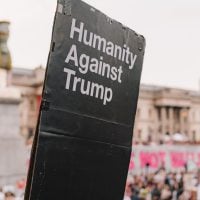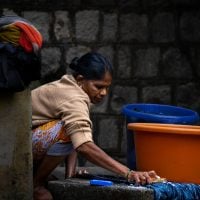Deadline: 31 July 2019
The AHRC GCRF Network+ project ‘The Antislavery Knowledge Network: Community-Led Strategies for Creative and Heritage-Based Interventions in Sub-Saharan Africa’ invites applicants from NGO, University, Research Institutes, Arts or Cultural Organisations, or Social Enterprises working in ODA countries to submit bids which will address how slavery is a core development challenge in sub-Saharan Africa via innovative approaches from the arts and humanities to deliver community-engaged antislavery work.
Focusing on the idea of activated community memory, the project champions the use of arts and humanities as a resource for social change. One of the core aims of the network is to explore the ways in which participatory arts-based strategies, rooted in heritage and memory, can empower Global South communities to play a central role in tackling contemporary slavery.
Themes
The call invites applications relating to three overarching themes. Each is designed to encourage projects to develop innovative, interdisciplinary and rights-based challenges to slavery and related forms of exploitation (including child labour and forced marriage). The three themes are:
- Voices for Freedom: which will centre on narratives and the lived experience of slavery, calling for projects to imagine new and challenging ways to collect, record and archive testimony from individuals and communities in the area of focus.
- Liberating Heritage: which will call for projects that connect space, place and memory around slavery with contemporary human rights and development challenges
- Picturing Emancipation: which will seek projects that utilise visual arts and photography to expose and reflect upon the experiences and legacies of slavery and efforts to resist and overcome its consequences.
Funding Information
- They have funding for medium-sized grants £5,000-30,000.
- Awards must be between 6 and 12 months in duration and must begin 1 October 2019.
Eligibility Criteria
- All commissioned projects will need to explain how their outputs will address slavery as a contemporary development issue. In addition, considering the way that social and digital media are acting as a catalyst for economic transformation and creativity in Africa, approaches are welcomed that maximise the potential of these technologies across all three themes. Criteria for selection will prioritise multi/interdisciplinary approaches, including those combining with methods from outside the arts and humanities; knowledge exchange activities, with evidence of co-design with partners; and enhancement of knowledge and skills. The commissioning strategy requires that each project monitors and records impact; provides evidence of co-design with partners; and plans for longer-term collaborations beyond the funded period.
- Each grant application must designate a Main Applicant (otherwise known as a Principal Investigator). This is the person to whom the grant will be assigned and who will be responsible for the leadership of the project including the reporting of progress, expenditure and outputs. The Main Applicant for a grant can be from the UK or one of the five regions of the African Union. All grants must have someone based in Africa either as Main Applicant or as a Co-Applicant. Applications led by Principal Investigators / Co- Investigators based in DAC list countries that involve collaboration with UK partners are eligible as long as they involve meaningful collaboration and meet all other eligibility requirements for funding. Applicants could be from an NGO, University, Research Institute, Arts or Cultural Organisation, or Social Enterprise. It is a requirement for proposals of the current call to demonstrate some collaboration between UK and DAC list country partners but there is no formal requirement for a UK based investigator to be named on the proposal.
- In addition to the Main Applicant, applications can also include up to three Co-Applicants from institutions based in Africa or the UK. It may also be possible to include Co-Applicants from countries other than these. The role of a Co-Applicant is to assist the Main Applicant in the management and leadership of projects as well in carrying out research.
- The Anti-Slavery Community Knowledge Database will provide some assistance for those wishing to find a UK partner or to discuss collaborations.
- Applicants may be researchers in the broadest sense of the term – people who wish to undertake an inquiry or exploration through any method (e.g., ethnography, literature review, discussion, film, theatre, applied art, music, interviews, conversation, observation etc.). Scholars, artists or cultural and creative industries may also apply. Applicants can be from any discipline, but the team must include at least one researcher who works in an arts or humanities discipline. There is no requirement that the Principal Investigator should represent a registered research organisation, but s/he should be able to demonstrate a capability for leading research projects (as evidenced through the bid and determined by the selection panel). All proposals should be research-focused and include contributions from research-focused partners. Representatives of non-academic organisations acting as Main Applicants should provide evidence of their capacity to lead and deliver research projects. Attention should be given, for instance, to issues such as support for the career development of researchers involved in the project as well as access to appropriate support facilities (e.g. for data management) and advice (e.g. on research ethics, safety etc.). Where organisations do not meet these requirements to lead and manage projects they may still be involved in other ways (e.g. as project partners, collaborators, sub-contractors) subject to appropriate and proportionate risk management arrangements being put in place by the lead organisation.
- A grant may be used for any research-related activity and to communicate the findings of research (as examples: ethnographic fieldwork; quantitative surveys; focus-groups; interview-based research; archival research; photographic documentation; producing a film/performance/play/media programme/app; evaluation of a governance programme; or holding a course or workshop about research). Applicants are encouraged to include costs for supporting their project (e.g., through training, mentoring or guidance) and evaluating and assessing its impacts. Mentors, consultants or project partners may be included from any country.
- All grant applicants must consider how they will or might achieve impact outside the academic community and submit this in the relevant sections of their application.
How to Apply
Applicants can apply online via given website.
For more information, please visit https://www.liverpool.ac.uk/politics/research/research-projects/akn/akn-funding-opportunities/









































